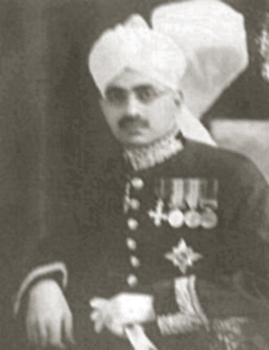 Sikander Hayat Khan was one of those pre independence political leaders who did not consider the concept of partition particularly the one as Muslim majority state and the other as Hindu majority as a good concept as it will only bring despair for the rest of the existing communities. The political role played by Sikandar Hayat Khan was mainly highlighted as an opposition to Jinnah`s policy of two-nation theory. This resulted in an initial conflict between Jinnah and Khan, which captured the background of League politics before independence.
Sikander Hayat Khan was one of those pre independence political leaders who did not consider the concept of partition particularly the one as Muslim majority state and the other as Hindu majority as a good concept as it will only bring despair for the rest of the existing communities. The political role played by Sikandar Hayat Khan was mainly highlighted as an opposition to Jinnah`s policy of two-nation theory. This resulted in an initial conflict between Jinnah and Khan, which captured the background of League politics before independence.
Early Life of Sikandar Hayat Khan
Born in 1892, Sikandar Hayat Khan was the descendent of Nawab Muhammad Hayat Khan after whom the family retains the title of Hayat for generations. Though the political career of Hayats began during the time of Sikh uprising in Punjab, Muhammad Hayat Khan played a significant role during 1857 when the first war of independence broke out. The contribution of Hayat`s ancestor was visible when he helped the British government by raising the Afridi tribe. In the time of Partition of India in 1947, one of the six sons of Muhammad Hayat Khan remained active in Indian politics in the name of Sikandar Hayat Khan. His brother Liaquat Hayat Khan served as a premier to the then princely state of Patiala in the east Punjab.
Contribution of Sikandar Hayat Khan
Sikandar Hayat Khan proved his diligence in administration at an early age of 20 years. As a young politician Sikandar Khan had made a strong mark in the local administration where he established his contacts with the Unionist Party. The latter was a coalition of Hindu farmers in East Punjab and Muslim Feudal land owners of the west Punjab. This group was vehemently against the partition of Punjab on which it established its autonomous hold over the united Punjab.
Sikandar Hayat was further appointed as the revenue member in Punjab government in 1929 followed by Deputy Governor of the State Bank of India in 1935. With this in his political scenario he succeeded Sir Fazle Hussain as the leader of Unionist Party which walked out victorious in the first election of Punjab Legislative Assembly in1937. Sir Sikandar Khan became the Premier of Punjab till he died of sudden heart attack in 1942.
His main political contribution was highlighted through the strong opposition of the Unionist Party towards the division of Punjab - a principle which is still relevant in the Punjab politics. He also introduced a number of innovative methods through various forms of taxation which had some difficulties at the beginning while his other methods of administration were well accepted. This included the waiving of debts owned by the Muslims to the money lenders and collection of one rupee tax from all the Muslims to renovate the Badshahi Mosque. Due to his contributions he had been buried in the mosque itself. The, generations after Sikandar Hayat continued to remain relevant in the present politics
Sikandar Hayat Khan`s Vision on Partition
Sikandar Hayat viewed Partition as a division of the state into Muslim majority and Hindu majority area which will only create Hindu rule in one area and Muslim rule in another area. On a contrary, in September 1939 Sikandar Hayat Khan placed a scheme for loose federation which would have regional and zonal legislatures to deal with the local subjects while the state might continue to remain united. The concept of minimal federation also saw expression in the statements of Dr. Abdul Latif of Hyderabad in 1940. As against this Muhammad Ali Jinnah envisaged a sovereign Pakistan which was clear in the Lahore session.
The issue of Pakistan could not be ignored in Punjab where Jinnah had a strong foothold as the major area was Muslim dominant and the Sikhs only formed a minority. As Jinnah promised to look for the welfare of the minority, this appeased the drifting relationship between Jinnah and Sikandar Hayat. The Lahore resolution included that adequate, effective and mandatory safeguards will be provided to the minorities to protect their political, cultural, religious, economic, administrative and other rights and will express interest in discussing with them which will be considered adequate and effective to express the views of the minorities of the area.
With the structure of Lahore resolution Jinnah made all efforts to avoid any clash between the Muslim Government and Muslim led party ensuring the security of the Minorities in the area. This improved his relationship with the other leaders including Sikandar Hayat Khan who was now indebted to Jinnah for continuing discussions on the issue of Partition.
Thus, Sikandar Hayat Khan can be regarded as a strong voice for Punjab whose main effort was to look for the benefit of the minorities who could derive the maximum benefit from the partition.






































